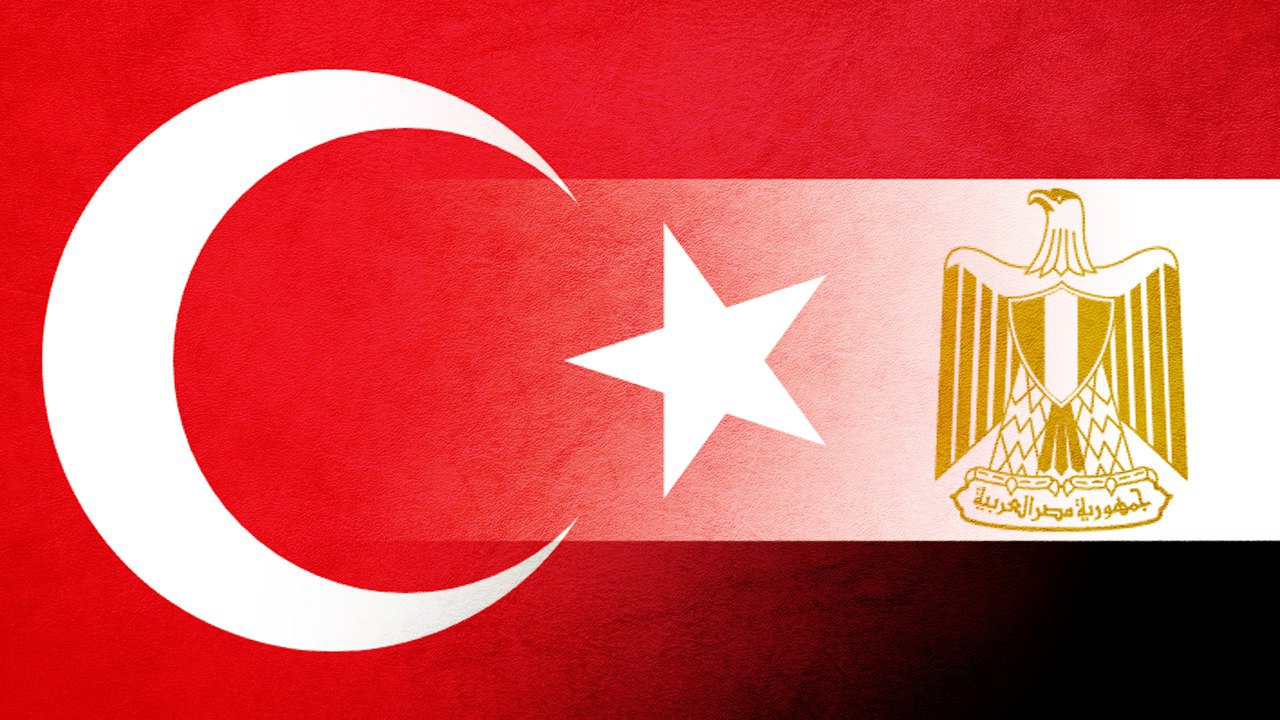Turkey and Egypt have significant importance not only in the region, but also in the world, with state traditions going back thousands of years.
Relations between these two countries have been tense after the overthrow of Mohammad Morsi in 2013.
The Turkish government’s insistent support for the Muslim Brotherhood, Egypt’s anti-Turkish actions with the Greek-Southern Cypriot axis in the Eastern Mediterranean, and Ankara and Cairo’s supports for different groups in Libya, are the main difficulties in improvising the relations.
THE IMPORTANCE OF NEGOTIATION EFFORTS
Although the problems I will outline may seem immovable obstacles at first glance, given the countries’ shared history, cultural values and complimentary economic interests, there is no actual reason why Turkey and Egypt can not remove these obstacles with the right actions.
The decisive point here would be for the rulers of the two countries to take some steps towards rehabilitating relations, which would benefit both of the major powers in the region. The first steps are abandoning narrow ideological points of view, and excluding the external factors that stand between the two countries.
Improving the relations between the two countries will secure regional peace and prevent the intervention of a third power.
Those who take some steps towards improving the negotiations and relations between Ankara and Cairo will be making an effort toward the future of these two major countries in the region, and these efforts should be respected.
POSITIVE REFLECTIONS OF SABREEN’S ARTICLE
In this context, the article titled “Proposals for normalization in Turkish-Egyptian relations”, written by Al-Ahram Newspaper columnist Mohamed Sabreen, for the United World International, contains some important ideas.
This article, which came to the public agenda and was debated in Turkey, was perceived positively by the government authorities, journalists and academics.
The country’s top newspapers have cited the article positively within their columns, and some experts and retired officials expressed their positive feelings about negotiating with Egypt.
A large portion of the negative comments about the article came from the FETO-PKK axis and radical Islamist groups and their affiliates, which are activiely engaged in hostile activities against Turkey.
From outside of Turkey, we can understand why Greece-Southern Cyprus, Israel and the United States oppose rapprochement, and they predictably expressed this opinion in their reports and commentaries on the issue.
THERE ARE NO ISSUES THAT CANNOT BE SOLVED
To reiterate, within Turkish public opinion, normalization with Egypt is being debated within large groups and some positive comments are being expressed.
Today, every party in favor of the national interests of both Turkish and Egyptian nations and in favor of regional peace advocates for a normalization process between the two countries.
If a political effort is made, solutions can be found for any of the problems I mentioned at the beginning of this article. Here is a list of possible suggestions:
1. In Turkey, the government must put an end to its pro-Muslim Brotherhood policies. Centuries old Turkish-Egyptian relations are too great to be restrained in favor of the Muslim Brotherhood or any other organization.
2. The Egyptian government must understand that their interests in the Eastern Mediterranean could only come from an agreement with Turkey. All the analysts say that Egypt has suffered a lot from their agreements with Greece and Southern Cyprus. The issue of the Eastern Mediterranean gas reserves, which would be to shape the future of our nations, should not and cannot be spent for only temporary disputes.
3. It is possible for Turkey and Egypt to come to an understanding in Libya. Egypt’ concerns over Libya, which shares a long border with it, can be understood, and Turkish actions in Libya where it is seeking to protect its interests in the Eastern Mediterranean in accordance with international law, smust be understood. The final solution to the Libyan issue would be from a mutual dialogue between Turkey and Egypt.
THE COMMON FUTURE OF THE TURKISH AND EGYPTIAN PEOPLES
In addition to all this, the coronavirus pandemic has brought great devastation, but also new opportunities which we might call “pandemic diplomacy.”
A cargo vessel full of medical supplies to be sent from Ankara to Cairo, or vice versa, can be a small step in quantity but a large step in quality, for the cooperation between the two sides of the Mediterranean.
Further steps around these issues would not only reduce the tensions between the two countries, they could also reduce the tensions in the entire region
Arguments between Turkey and Egypt open up opportunities to the enemies of both countries.
It is time for the Turkish and Egyptian nations, with a common history going back thousands of years, to make the right decisions.
Governments, political disagreements and small political affairs come and go, but the Turkish and Egyptian nations will always be permanent, and therefore, these two states must work together to come to terms.

















Leave a Reply